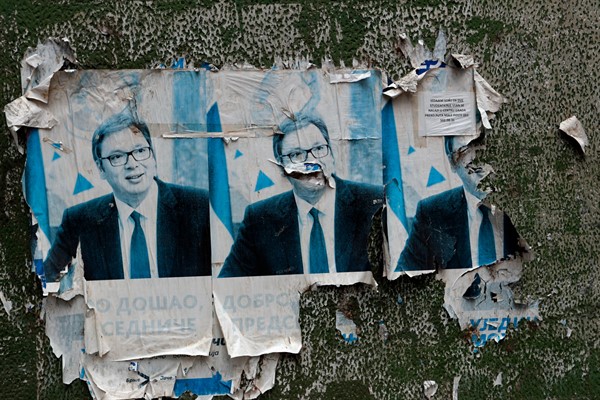Voters in Serbia are set to go to the polls this Sunday for parliamentary elections that were originally scheduled for April, before the coronavirus pandemic forced their postponement. President Aleksandar Vucic’s government has generally fared well against the virus so far, recording over 12,500 confirmed cases and 257 deaths as of June 17. It eased lockdown restrictions back in early May, after imposing some of the most draconian containment measures in Europe. But Serbia’s success against COVID-19 belies a long-term political record that is far less impressive.
Last month, in its annual “Nations in Transit” report, the democracy watchdog Freedom House downgraded Serbia from a “semi-consolidated democracy” to a “hybrid regime,” placing it in the same category as Viktor Orban’s Hungary. Any democratic progress made in the years that followed the end of then-President Slobodan Milosevic’s autocratic regime in 2000 has been seriously undermined by six years of increasingly authoritarian rule under Vucic and his right-leaning Serbian Progressive Party, or SNS. According to Freedom House’s report, “years of increasing state capture, abuse of power, and strongman tactics employed by Aleksandar Vucic” have tipped Serbia “over the edge.”
Political conditions in the country have deteriorated to such an extent that opposition parties have been threatening to boycott the next election for nearly two years, since September 2018. The Alliance for Serbia, a grouping of seven opposition parties from across the political spectrum, has long argued that free and fair elections are impossible due to systemic corruption and a lack of independent media and institutions. It makes their participation pointless, they say—a sentiment shared by the 55 opposition lawmakers who have refused to take their seats in the 250-member National Assembly since February 2019.

